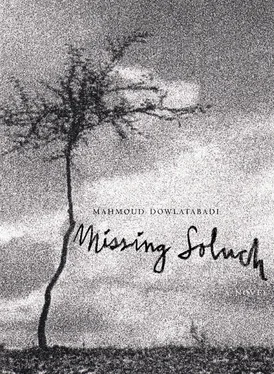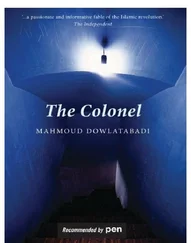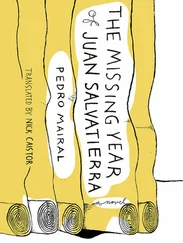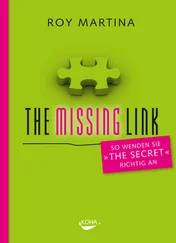Jalil took another one-qeran coin and added it to the others.
“That’s all!”
“It’s not enough.”
“That’s it. That’s my ante.”
“Very nice …! Three horses! Pay up six qeran ! Ghodrat, you’re next?”
Ghodrat held his fist beside the circle. Morad warmed the pieces in his hand and said, “Ante up!”
Ghodrat spoke like an old hand.
“I’m in!”
Morad threw up the pieces and Ghodrat put his fist beneath them, ruining the round. Morad gathered the pieces, saying, “I’m doing well for myself, so you cheat! If you’re afraid, then ante up less!”
Ghodrat said, “Just toss them. I’m putting in an extra two qerans now!”
Morad tossed the pieces up.
“It’s so dark in here!”
It was Ali Genav. He swung the door open and entered the stable.
“Close the door!”
“Close it!”
“Shut the door!”
Ali Genav blinked, then shut the door. The game had picked up again. Ali Genav slowly pulled himself to the wall and stood watching over the game. Morad was still dealing, and he was dealing winning sets to himself, one after another. Jalil was upset. He had begun to lose. His fist was getting more and more empty. From time to time, he wiped his nose with his sleeve, and he kept his eyes on the pieces as they were thrown and as they fell. The coins, ranging from the small ten shahi to the valuable five qerani , were circulating around the gambling circle, going from hand to hand. Their palms were sweating. Eventually all the boys, including Jalil, had arranged all their coins in neat piles beside themselves. Each had constructed a little tower of coins — from large to small in value — in front of himself. The boys were caught up in the game. The game was moving along quickly; time passed without their noticing. Now, no one was anteing small change, like ten- shahis or one- qeran coins. Even Jalil wasn’t anteing less than two qerans against the others. The pieces would go up in the air and fall on the ground and eight or nine qerans would change hands. Everyone was focused on playing the game. Their lips were dry, their eyes staring, their bodies tense. Even Ali Genav, the most accomplished gambler there, had stopped the knitting he had brought with himself and was fixated on the game. No one made a sound.
“Where is that son of a bitch?”
Kadkhoda Norouz’s angry voice echoed in the yard, followed by the sound of his feet stomping across the snow.
“Eh? Where is your pathetic excuse for a brother, girl?”
The game stopped. Abbas knew the Kadkhoda was looking for him. He froze in his place. Everyone froze. Only Ali Genav was able to do something; he picked up his knitting and busied himself with it. He somehow also managed to reposition himself back on the edge of the trough, to make it seem as if he had nothing to do with the disgrace going on in the center of the stable. Nonetheless, Ali Genav immediately wished he’d never come.
The door of the stable flew open with a body blow by the Kadkhoda. He filled the doorway with his worn camel-hair cloak, a scarf on his head, and leather boots on his feet. He glared at the boys. Abbas, like a sparrow in the sights of a hawk, braced himself with his back still to the door. Others, standing or half-standing, froze in their places and lowered their heads. The money was still on the ground, left in individual piles. The bajal pieces were scattered on the dirt where they’d fallen: a horse and three others. Everyone was frozen in place. In the dim light of the dusk, the Kadkhoda quickly recognized Abbas. He strode toward him and laid a boot kick into his back.
“You son of a dog! Now you’ve gone to lead my son astray as well? You’re running a gambling circle here?”
Abbas was thrown face down into the playing circle, and the first idea that occurred to him, while absorbing the Kadkhoda’s curses and kicks, was to grab one of the piles of coins. He reached out to the small tower of Jalil’s coins, grasping them in his hand along with a fistful of dirt and mud. The Kadkhoda took Abbas by the collar, lifting him up to turn his face toward him. The fear that the Kadkhoda would take the money away from him terrified Abbas, and so before he had been turned to face him eye-to-eye, he stuffed the coins — along with the dirt, mud, and old straw he’d grabbed from the ground — into his mouth, filling his cheeks as if he they were filled by two walnuts. The Kadkhoda planted a slap across Abbas’ face, and a few coins flew out from between his lips and teeth. Before the second slap could connect with his face, Abbas swallowed, and while the Kadkhoda watched him, his eyes bulged as if they would pop out of their sockets. The veins on his neck were visible, and the skin on his face reddened.
The Kadkhoda shouted, “Go bring some water! The fool’s going choke himself!”
He let Abbas go and turned to find his son Hamdullah. He found him in the corner on the trough. He dragged him down and jerked him left and right. Ali Genav saw an opportunity to sneak out. But the Kadkhoda turned toward him.
“Aren’t you ashamed of yourself, man? Your beard’s getting white, your mother and wife are dying, and you’ve come here to gamble with a few boys who don’t have hair on their lips yet! Ach!”
Meanwhile, Hamdullah managed to escape his father’s grip and ran out into the alley, crying. Ghodrat, who until then had been standing on the edge of the action, also dashed out. Only Morad and Jalil remained. Morad had left to bring a bowl of water, and now was busy pouring water down Abbas’ throat. It was as if Jalil hadn’t realized that he had a chance to escape. The Kadkhoda was still busy talking to Ali Genav. So Jalil crept out the door and tried to forget about his coins that he had lost inside.
Abbas was still swallowing the coins, with the help of the water that Morad was pouring down his throat. Although Morad kept telling him to spit them out, he didn’t listen to him. With his red face and bulging eyes and veins, he was swallowing the coins one by one. After the last one had gone down, he took a deep breath and leaned his shoulder against the wall. Because of the effort, sweat was pouring from his ears, his back, and under his arms. He felt like dying. He hoped that the Kadkhoda would have nothing more to do with him, but the Kadkhoda returned and stood above him.
Abbas cried out painfully, “Kadkhoda, I was wrong!”
The Kadkhoda then swung the door open and went outside. Ali Genav stood over Abbas for a moment, then stooped and walked out the doorway. Now that the Kadkhoda had left, Hajer came into the stable to see what had happened to her brother. Ali Genav looked her over as if she were goods he was about to buy, and then asked, “Your mother’s not returned yet?”
Hajer said no, then she entered the stable. Ali Genav was about to enter the alley when he changed his mind and entered the house. He sat by the doorway in such a way as to catch the last of the sunlight for the shawl he was knitting, and he busied himself with it. Hajer returned from the stable and began to light the lamp.
Ali Genav asked, “No news from my house?”
Hajer replied, “No. It was still light when I went there and came back. My mother was there then.”
Morad brought Abbas into the room and leaned him against the wall. Then he sat beside him and asked Hajer, “Don’t you want to light your stove?”
Before Hajer was able to reply, Abbas said, “The lock! Get the lock from the cabinet and give it to me.”
Hajer brought the lock. Abbas rose from his place with difficulty and as he was leaving told Hajer, “Go tell Mama to come and make me her herbal tea! The kind for your stomach! Get going! Ow …”
Читать дальше












